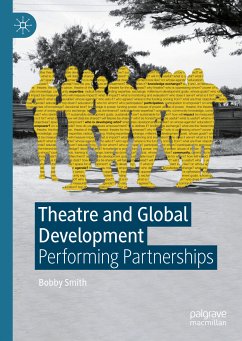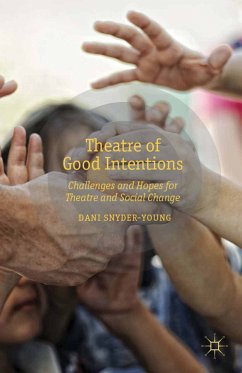How do theatre and development partnerships operate? What issues impede collaborations between various institutions and individuals? Why do relations between global North and South partners often fail to reflect important values such as equality, reciprocity and mutual benefit?
This is the first book to examine theatre and global development partnerships. It focusses on the UK and East African countries of Kenya, Rwanda and Uganda, presenting the author's own experiences, case study analyses and perspectives from practitioners and scholars involved in theatre and development. It argues that simplistic binaries pervade partnerships, whereby the global North is regarded as 'modern' and 'developed' versus the 'under-developed' global South. This results in unequal power relations between collaborators, less effective projects with communities, and a lack of reciprocity and mutual benefit. Consequently, this book revitalises how we conceptualise partnerships. Issues such as widening inequalities, conflict, health and the climate crisis impact all countries. How, then, can we work across borders to support interconnected learning and action on these challenges? In this regard, principles of solidarity and mutual responsibility, as well as critical openness, enable us to reflect honestly about the failures of the partnerships we participate in and move beyond simplistic binaries of global North and South.
The book is of importance to applied and socially engaged performance scholars and practitioners, and to development workers interested in arts and social change.
Dieser Download kann aus rechtlichen Gründen nur mit Rechnungsadresse in A, B, BG, CY, CZ, D, DK, EW, E, FIN, F, GR, HR, H, IRL, I, LT, L, LR, M, NL, PL, P, R, S, SLO, SK ausgeliefert werden.









